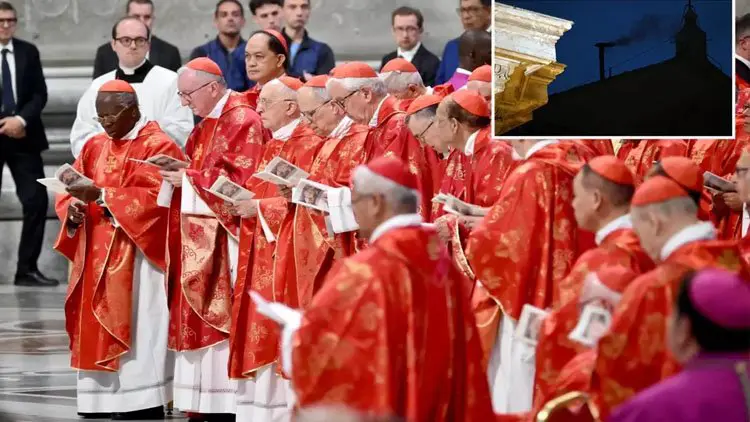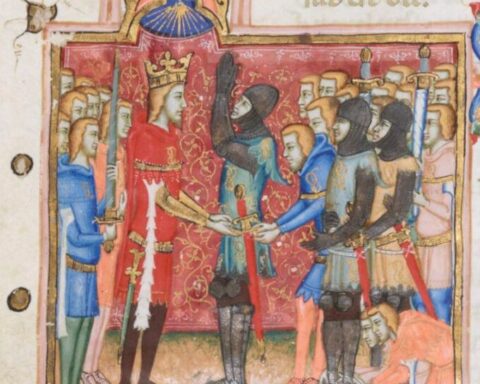“No more war. War never again.”
— Pope Paul VI, United Nations General Assembly, 1965
In an age of drones, dossiers, and deterrence, it is striking that one of the most persistent voices for peace comes from a country with no army. Yet, counterintuitively, the Holy See has a storied diplomatic record vis-à-vis international organizations going back to the late 19th century. In 2025, as the war between Russia and Ukraine ground on with no clear resolution, the Holy See quietly signaled its willingness to host or facilitate negotiations. Pope Francis appointed Cardinal Matteo Zuppi in 2023 to lead a renewed “mission of peace,” visiting Kyiv, Moscow, and Washington in an effort not to impose terms but to offer moral clarity and a ‘neutral’ mediator. Although largely ignored by the great powers, the Vatican’s intervention recalled a diplomatic vision that predates the United Nations and liberal internationalism.
This tradition rests upon the work of Pope Leo XIII and Jacques Maritain, and was perhaps best articulated by Pope Paul VI, whose 1965 address to the United Nations remains among the most compelling moral interventions in modern diplomacy. Taken together, these figures reveal a form of Catholic diplomacy that is neither an extension of coercive power nor an expression of passive neutrality but instead a countercultural mode of political engagement rooted in restraint.
It was Pope Leo XIII, who led the Catholic Church from 1878 to 1903, who oversaw the papacy’s transformation from a territorial power into a moral voice in global affairs, marking a turning point in the Catholic political imagination. Stripped of the Papal States after Italian unification in 1870, the Vatican was forced to confront the collapse of its temporal sovereignty. Rather than retreat, Pope Leo responded by recasting the Church’s role in international life, not as a state among states, but as a juridical and spiritual conscience beyond them. His encyclicals, Rerum Novarum, Immortale Dei, and Sapientiae Christianae, forged a new grammar of Catholic diplomacy rooted in natural law and centered on the irreducible dignity of the human person.
Maritain (1882-1973) did not conceive of Catholic diplomacy as a vehicle for religious influence, but as a principled affirmation that political stability depends on deeper moral foundations. For him, diplomacy was not the assertion of confessional power, but the expression of a vision in which human dignity, justice, and peace are treated as prior to interest or ideology. In an age increasingly defined by technocratic realism and strategic fatigue, his example recalls a form of statecraft that is not idealistic in the pejorative sense, but civilizational in its seriousness.
“The human person,” Maritain wrote, “is ordained directly to God as to its absolute ultimate end. Its direct ordination to God transcends every created common good.”
What distinguishes Vatican diplomacy is not only its theological basis but its historical posture. Unlike secular states, the Vatican rarely negotiates from a position of economic leverage or military power. Instead, its influence stems from a sustained reservoir of symbolic authority rooted in moral continuity, historical consciousness, and a long-standing institutional presence within the ethical framework of the international order
As a non-aligned, supranational actor, the Vatican is uniquely capable of crossing boundaries traditional diplomacy cannot. Its envoys are usually priests or bishops whose authority derives not from national interest but from pastoral obligation. This foundation enables the Vatican to participate credibly in areas of conflict, ideological polarization, and diplomatic paralysis, drawing legitimacy from its sacramental vocation and institutional continuity.
The Church’s understanding of diplomacy is underwritten by its theology of the human person. As Leo XIII and Maritain argued, human dignity is not a concession of the state but a reflection of divine order. This uniquely places moral constraints on political will and frames international order as a space of ethical responsibility.
Yet Vatican diplomacy is not immune to failure. The 1933 Reichskonkordat signed between the Holy See and Nazi Germany remains a source of enduring controversy. Intended to protect the Church’s rights within the Third Reich, the treaty was seen by many as a legitimization of Hitler’s regime. While some Vatican officials hoped to positively influence Germany from within, the agreement inadvertently silenced Catholic opposition during the crucial early years of Nazi consolidation, scandalizing the very principles of their diplomacy. This episode reveals a tension at the heart of Vatican diplomacy: the risk of moral compromise in exchange for the preservation of its institutions. When diplomacy is too cautious, it may appear complicit; when it is too prophetic, it may lose access altogether. The Reichskonkordat remains a sobering reminder that even diplomacy grounded in theology must wrestle with prudence, realism, and the danger of moral compromise.
At its best, Vatican diplomacy reflects a political theology of peace: the belief that international order should mirror the justice, restraint, and solidarity that define divine order—an ideal echoed in Catholic social teaching and challenged by the erosion of mutual responsibility in contemporary global politics. In an era of geopolitical volatility and transactional statecraft, the Vatican’s quiet insistence on peace as a spiritual vocation is not a weakness, but a testament to its enduring witness. It reminds the world that diplomacy is not just strategy but an act of moral stewardship. It remains to be seen if Pope Leo XIV will pursue a more assertive diplomatic presence in geopolitical affairs.
Source: https://providencemag.com/2025/06/the-vaticans-stateless-diplomacy/






